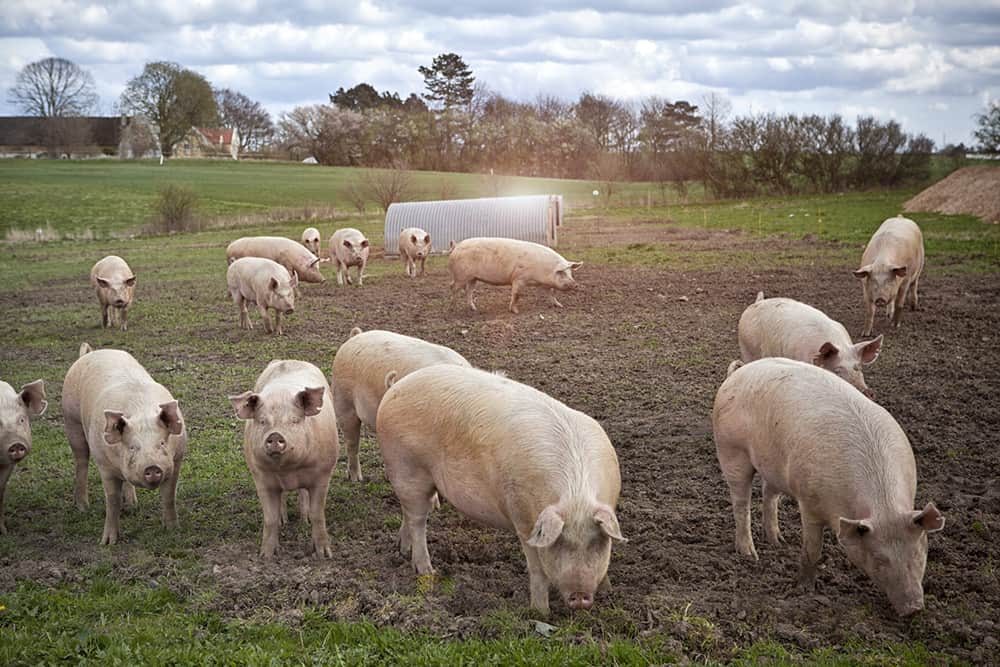A Guide to Friendly Farm Animals for Curious Kids
Welcome, parents and young explorers, to our delightful journey through the bustling world of farm animals! There’s so much to learn about our fluffy, feathered, and sometimes sassy friends who play a vital role in making a farm feel like a magical place. ?
This guide is perfect for introducing your little ones to the wonders of farm life. So, pull on those boots, and let’s set out on a fun-filled adventure to meet the incredible inhabitants of the farm!
Why Learning About Farm Animals Is Important
Understanding farm animals offers kids an exciting way to connect with nature, develop empathy, and appreciate the hard work that goes into our food and resources. Not just that, it’s also a fantastic opportunity to get them excited about animals, science, and the world around them in a way that’s interactive and full of heart. ??
Meet the Barnyard Favorites
Our farm animal friends each have their own unique traits, sounds, and even personalities. From the protective mama hen to the gentle giant that is the cow, every animal has a story, and we can’t wait to share them with you!
Cuddly Cows
Did you know? Cows are just like big grass puppies! They have best friends, love to play, and some even enjoy a good scratch behind the ear. ?
Oinking Pigs
They’re more than just the ‘mud-lovers’ of the farm! Pigs are super smart and can learn tricks just like dogs. Plus, they communicate with one another using various oinks, grunts, and squeals. ?
Clucking Chickens
These feathery dynamos are egg-cellent friends who love to forage and chat with their fellow cluckers. Chickens can recognize over 100 different faces (both animals and humans!). ?
Fun Activities to Learn About Farm Animals
Engaging your child with fun, educational activities is a great way to teach them about farm animals while sparking their creativity. From arts and crafts to storytelling, there’s an endless assortment to choose from:
- Story Time: Create an interactive storytime with books about farm animals, giving voices to the various characters for an engaging read.
- Farm Animal Sounds: Teach your kids the different sounds farm animals make. This is not only fun but also helps with their auditory learning.
- Arts and Crafts: Try making animal masks or drawing and coloring your favorite farm friends.
Quick Fun Facts
Did you know that goats have rectangular pupils in their eyes that help them have a wide field of vision? Or that duck’s feet have a special adaptation that means they don’t get cold, even if they swim in icy water? These are the kinds of cool tidbits you’ll discover in our guide.
Nurturing Kindness and Responsibility
Interacting with farm animals can also teach kids about responsibility. Feeding, grooming, and taking care of animals instills a sense of duty and kindness towards other living beings. Animals give back so much love and joy in return! ?
As we embark on this adventure together, remember that every visit to a real or virtual farm is an opportunity to foster curiosity and kindness in your little ones. So, let’s nurture those twinkling eyes with the wonders of farm animals. Stay tuned as we dive deeper into each animal’s life, their care, and their super cool attributes, all while having the best time together.
Ready to learn more about each farm animal and share this extraordinary world with your kids? Stick around, because we’ve got plenty of fun facts, activities, and heart-warming stories coming up next!

5 Essential Things Parents Should Know About Preparing for Farm Animals
Preparing your little ones for interacting with farm animals is not just fun but also an enriching experience. As parents, knowing a few tips and tricks can help maximize this encounter. Let’s explore some important things you should know:
1. Safety First!
It’s crucial to teach children that, while farm animals are often friendly, they are still animals with their own behaviors and boundaries. Explain the importance of approaching animals slowly and gently, always under adult supervision, and never startling them. Make sure kids understand to keep their faces away from animal mouths and to wash their hands after petting animals to prevent the spread of germs.
2. Understanding Animal Needs
Every animal on the farm requires different care. Start a conversation with your kids about what each animal needs to be happy and healthy. This includes their diet (what they eat), their habitat (where they live), and their social needs (how they interact with others). This not only prepares them for interaction but also instills empathy and knowledge.
3. Encouraging Gentle Interaction
Teach your children to be gentle with animals. Encourage them to pet animals with calm and open hands rather than grabby fingers. It’s an excellent way to practice gentle touch and understand that animals have feelings too. Patience is also key when waiting for animals to approach in their own time.
4. Dress for the Occasion
Farm visits can get messy, so make sure your children are dressed appropriately. Opt for closed-toe shoes to protect feet, and clothes you don’t mind getting a bit dirty. Also, consider the weather; sun hats and sunscreen for sunny days, or waterproof coats and boots if it’s wet outside. Comfort goes a long way in keeping the little adventurers happy.
5. The Importance of Habitats
Before your visit, talk about the different homes animals live in on the farm. Teach kids how stables, coops, and pens keep animals safe from predators and the elements. Discuss why it’s important for animals to have a clean and comfy place to sleep and how this is similar to their own need for a safe home.
By keeping these pointers in mind, you prepare your kids for a memorable and educational experience on the farm. They’ll learn respect for animals, how to interact safely with them, and gain a deeper understanding of where our food comes from. This guide will also prepare them for a hands-on experience, cultivating a newfound appreciation for our furry, fluffy, and feathered friends. So let’s get those little boots muddy and those tiny hands ready for a day of fun and learning!
Continue to follow this guide as we delve further into the fascinating world of farm animals. Up next, we’ll provide insights on the role each farm animal plays and how their daily lives weave into the fabric of farm living, making it a truly special place for everyone to enjoy!
For more great fun click here. For more information see here
Disclaimer
The articles available via our website provide general information only and we strongly urge readers to exercise caution and conduct their own thorough research and fact-checking. The information presented should not be taken as absolute truth, and, to the maximum extent permitted by law, we will not be held liable for any inaccuracies or errors in the content. It is essential for individuals to independently verify and validate the information before making any decisions or taking any actions based on the articles.




